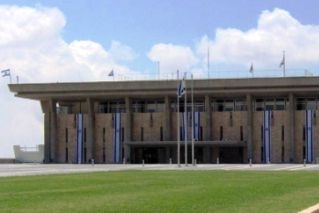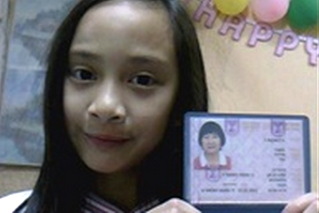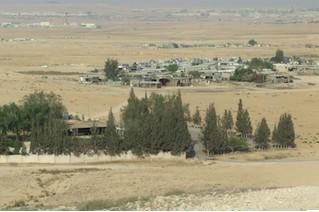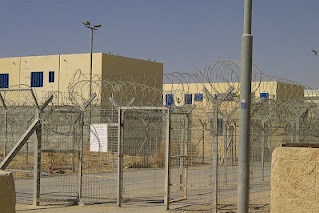 Photo CC by Joshua Paquin
Photo CC by Joshua Paquin
19th Knesset – Winter Session Review – 2014
As the second session of the 19th Knesset draws to a close, we look back over some of the bills and laws that were discussed over this period.
——————————————————————————————–
Free Speech and Democratic Representation
———————————————————————————————
Two bills were submitted to the Knesset during the winter session which sought to curtail the activities of NGOs in Israel. These bills were the most recent incarnation of an ongoing campaign in recent years to limit international funding to various causes the government dislikes. The two bills, submitted by MKs Ayelet Shaked and Miri Regev, would tax donations from foreign state entities to Israeli NGOs that implicitly or explicitly support certain actions such as calling for boycotts or calling for the prosecution of Israeli soldiers, and would prevent the registration of NGOs whose aims and purposes run contrary to the definition of Israel as a “Jewish and democratic state.” Following sustained public pressure, both bills were eventually withdrawn before they were brought beforethe full Knesset plenum for a final vote.
A set of bills, known as the ‘governance laws,’ were approved by the Knesset with a majority vote of 67 – 0. The main feature of these bills, which implemented changes to the procedural aspects of governance, is the raising of the electoral threshold required to gain entrance to the Knesset from 2% to 3.25% of the total national vote. ACRI strongly opposed raising the qualifying threshold as it has the potential to damage the representation of minority groups in the Knesset, especially the Arab minority and Ultra-Orthodox Jews.
The right to free speech was raised again in the context of the Bill for the Prohibition on Using Nazi Symbols and Monikers. This bill, which was approved by the Ministerial Committee on Legislative Affairs but is yet to be submitted to the full Knesset plenum, sought to implement a sweeping ban on the use of “inappropriate” names and symbols associated with Nazis and the holocaust. The ban would be enforced through the imposition of prison sentences. While sensitive to the emotional implications of holocaust symbolism, ACRI believes this bill would place an undue restriction on public discourse in Israel and damage the constitutional right to free expression.
——————————————————————————————–
The Rights of Children
——————————————————————————————–
This Knesset session features a broad variety of committee discussions and bills dedicated to the rights of children. These focused on the rights of Israel children, children of asylum-seekers and migrant workers and children in East Jerusalem and the Occupied Palestinian Territories.
While ACRI welcomed the awarding of residency status to 221 children of migrant workers in February 2014 after a four-year struggle, ACRI decries the hundreds of children of foreign workers and asylum-seekers who are still being held in prison. These include children waiting for a decision regarding their application for refugee status, children who can not be deported to their country of origin, children awaiting deportation, and others. ACRI believes that the variety of purposes for which children are imprisoned in Israel can be dealt with through other, less harmful methods. As it stands, the detention of children has become the State’s default method in dealing with children without legal status, many of whom experience harsh conditions in detention and suffer devastating emotional repercussions.

Additionally, in December 2012, following a High Court of Justice decision in favor of an ACRI petition, the government announced the partial shortening of detention periods for Palestinian minors, along with a reduction in the list of offenses designated as security offences in the military’s Security Provisions Order. However, despite the easing of arrest and detention procedures pertaining to minors, ACRI argued before the Knesset’s Public Petitions Committee that Palestinian minors continue to be treated differently than their Israeli peers in terms of the length of their detention, their access to the courts and the list of crimes for which they can be detained, and that this situation must be resolved.
Inside Israel, data released in October 2013 indicated that there has been a sharp increase over the last decade in the percentage of the population at risk of falling into poverty. The poverty rate among children is double the rate in European countries. In 2011, the risk of an Israeli child falling into poverty stood at 40%, compared to the average risk of 20% among European countries. This situation is exacerbated by government decisions to cut child allowances in recent years, which have become a major source of livelihood for families living in poverty, in part because the total welfare benefits for the poor in Israel do not meet the basic subsistence needs of welfare recipients.
——————————————————————————————–
Bedouin Rights & the Begin-Prawer Plan
——————————————————————————————–

One of the most prominent items on the agenda during the 2014 winter Knesset session was the Bill for the Regulation of Bedouin Settlement in the Negev, more commonly referred to as the Begin-Prawer Plan.
While the declared aim of the bill was to regulate Bedouin settlement in the Negev, the discriminatory policy ignores the reality on the ground, violates the land rights of the Bedouin population and imposes a unilateral and unacceptable framework that would lead to the displacement of tens of thousands of people from their homes.
After passing successfully through the Ministerial Committee for Legislative Affairs and undergoing weekly discussions in the Interior Affairs and Environment Committee under the stewardship of MK Miri Regev, a number of external problems coalesced to temporarily halt the legislative progress of the bill.
Former Minister Benny Begin announced publicly that the Bedouin people had not been consulted in the formulation of the plan and that he no longer supports the plan in its current form. Meanwhile, the government appointed Minister for Agriculture, Yair Shamir, to lead the government’s legislative strategy. Minister Shamir has dedicated a period of time to researching this complex matter, after which he will announce the government’s renewed approach to the bill.
——————————————————————————————–
Other Issues That Emerged During the Session
——————————————————————————————–
Migration, Status & Residency
- On December 10, 2013, the Knesset passed a law designed to circumvent September’s High Court of Justice ruling that overturned the original “Anti-Infiltration law”. The central change in the new law is that the detention center where the asylum seekers can now be indefinitely detained is labeled “an open facility” – despite the fact that it is run by the Israel Prison Service, requires attendance at three compulsory head-counts each day, and possesses other prison-like characteristics. ACRI and others have submitted an expedited petition to the High Court of Justice against this law, which is due to be heard on April 1, 2014.

- The Special Committee on Foreign Workers discussed the plight of women who have entered into a relationship with Israeli men, immigrated to Israel, and after beginning the process of regulating their status, found themselves as victims of a violent relationship. Violent and abusive men can take advantage of the fact that their immigrant wives are entirely dependent on them for the regulation of their status. ACRI calls upon the Interior Ministry to provide special protections to such women and offer them a safe pathway to residency that does not force them to rely on their violent partners.
Human Rights in Criminal Proceedings
- The government promoted a Counter-Terrorism Bill that seeks to normalize draconian emergency provisions and defense regulations dating back to the British Mandate. While preventing terrorist activities lies at the forefront of the state’s duty to protect its citizens, the challenge in a democratic state is to confront terrorism while simultaneously preserving human rights and fundamental democratic principles. This bill, in its current form, will aggravate the original draconian emergency provisions and create a dangerous pattern where human rights considerations are disregarded in the name of fighting terrorism. This bill was submitted for a second and third reading in the Knesset plenum in this session, and debate will continue on this bill during the next summer Knesset session.
- An amendment to the Criminal Procedures Bill would grant police forces expanded powers to perform searches, to require suspects to produce documents during investigations, to seize evidence, and to enable access to electronic materials. This bill passed its first reading and while continue to be promoted in the summer Knesset session.
- The Constitution, Law and Justice Committee discussed the use of restraining orders, specifically in the context of forbidding right-wing activists to enter the Occupied Territories. These orders are often issued without due process, based upon secret evidence and are issued without giving activists the opportunity to refute the claims asserted against them.
Social & Economic Rights
- In the lead up to the decision of the German Health Committee (named after Health Minister Yael German) regarding the balance and overlap between the private and public health systems, ACRI sent a copy of our position paper – “No difference between rich and poor” to senior Ministry officials and members of Knesset. This position paper details the necessary steps required to equally safeguard the right to health for all Israeli citizens.
- The Water Authority presented its new draft regulations on water disconnections to the Knesset’s Economic Affairs Committee, following input from ACRI on multiple previous drafts. For the first time, the new regulations set prohibitions against disconnecting certain vulnerable population groups from the water supply.
- The Knesset dedicated a substantial portion of its time during the winter session to discussing proposals relating to affordable housing – including the National Housing Committee Law – a comprehensive reform in the field of planning and building, a new government program for the establishment of 150,000 new housing units. ACRI has continued to expound upon the importance of inserting clauses relating to affordable housing within government land issuances in order to integrate affordable housing options into the planned housing supply. To this end, an amendment was inserted requiring that one quarter of land issued by the government must be designated for affordable housing, and supervision over increases in rental housing has been increased. These discussions, which began in the 2013 Knesset summer session, will continue into the next Knesset session as well.
——————————————————————————————–
The final day of the Knesset summer session was March 23, 2014.
The Knesset will resume legislative activities on May 11, 2014.
To receive ACRI’s Knesset updates direct to your inbox, click here!







